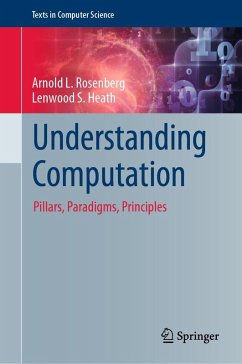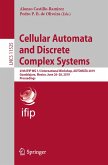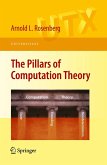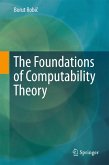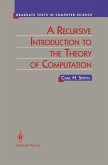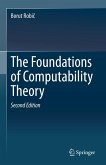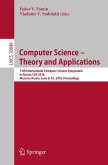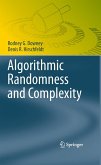Computation theory is a discipline that uses mathematical concepts and tools to expose the nature of "computation" and to explain a broad range of computational phenomena: Why is it harder to perform some computations than others? Are the differences in difficulty that we observe inherent, or are they artifacts of the way we try to perform the computations? How does one reason about such questions?
This unique textbook strives to endow students with conceptual and manipulative tools necessary to make computation theory part of their professional lives. The work achieves this goal by means of three stratagems that set its approach apart from most other texts on the subject.
For starters, it develops the necessary mathematical concepts and tools from the concepts' simplest instances, thereby helping students gain operational control over the required mathematics. Secondly, it organizes development of theory around four "pillars," enabling students tosee computational topics that have the same intellectual origins in physical proximity to one another. Finally, the text illustrates the "big ideas" that computation theory is built upon with applications of these ideas within "practical" domains in mathematics, computer science, computer engineering, and even further afield.
Suitable for advanced undergraduate students and beginning graduates, this textbook augments the "classical" models that traditionally support courses on computation theory with novel models inspired by "real, modern" computational topics,such as crowd-sourced computing, mobile computing, robotic path planning, and volunteer computing.
Arnold L. Rosenberg is Distinguished Univ. Professor Emeritus at University of Massachusetts, Amherst, USA. Lenwood S. Heath is Professor at Virgina Tech, Blacksburg, USA.
This unique textbook strives to endow students with conceptual and manipulative tools necessary to make computation theory part of their professional lives. The work achieves this goal by means of three stratagems that set its approach apart from most other texts on the subject.
For starters, it develops the necessary mathematical concepts and tools from the concepts' simplest instances, thereby helping students gain operational control over the required mathematics. Secondly, it organizes development of theory around four "pillars," enabling students tosee computational topics that have the same intellectual origins in physical proximity to one another. Finally, the text illustrates the "big ideas" that computation theory is built upon with applications of these ideas within "practical" domains in mathematics, computer science, computer engineering, and even further afield.
Suitable for advanced undergraduate students and beginning graduates, this textbook augments the "classical" models that traditionally support courses on computation theory with novel models inspired by "real, modern" computational topics,such as crowd-sourced computing, mobile computing, robotic path planning, and volunteer computing.
Arnold L. Rosenberg is Distinguished Univ. Professor Emeritus at University of Massachusetts, Amherst, USA. Lenwood S. Heath is Professor at Virgina Tech, Blacksburg, USA.
Dieser Download kann aus rechtlichen Gründen nur mit Rechnungsadresse in A, B, BG, CY, CZ, D, DK, EW, E, FIN, F, GR, HR, H, IRL, I, LT, L, LR, M, NL, PL, P, R, S, SLO, SK ausgeliefert werden.
Es gelten unsere Allgemeinen Geschäftsbedingungen: www.buecher.de/agb
Impressum
www.buecher.de ist ein Internetauftritt der buecher.de internetstores GmbH
Geschäftsführung: Monica Sawhney | Roland Kölbl | Günter Hilger
Sitz der Gesellschaft: Batheyer Straße 115 - 117, 58099 Hagen
Postanschrift: Bürgermeister-Wegele-Str. 12, 86167 Augsburg
Amtsgericht Hagen HRB 13257
Steuernummer: 321/5800/1497
USt-IdNr: DE450055826
Bitte wählen Sie Ihr Anliegen aus.
Rechnungen
Retourenschein anfordern
Bestellstatus
Storno

